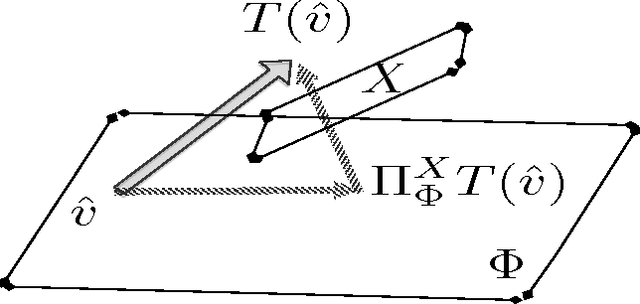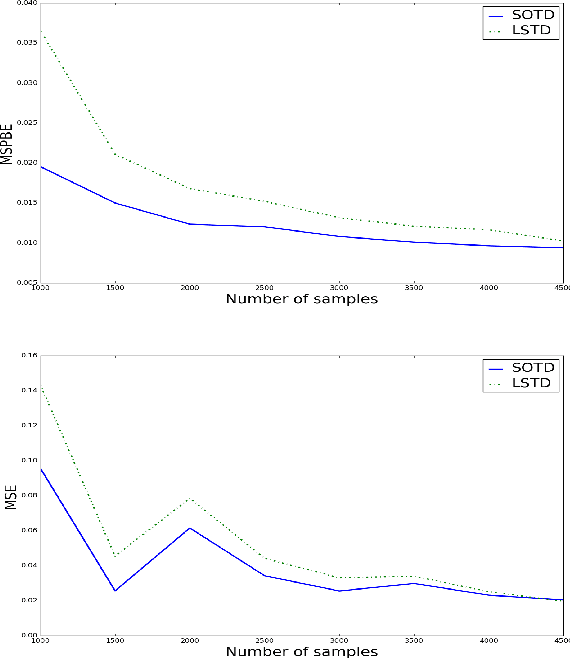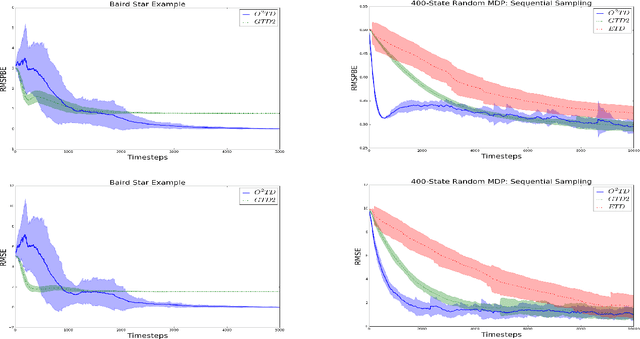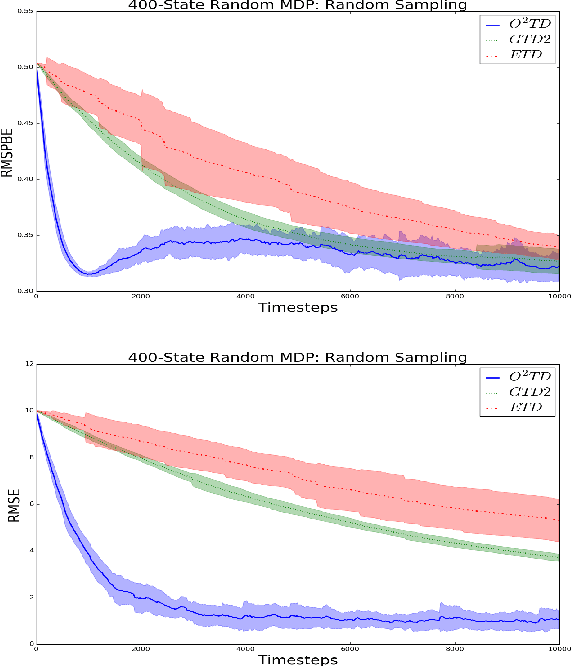Saad Biaz
Stable and Efficient Policy Evaluation
Jun 06, 2020



Abstract:Policy evaluation algorithms are essential to reinforcement learning due to their ability to predict the performance of a policy. However, there are two long-standing issues lying in this prediction problem that need to be tackled: off-policy stability and on-policy efficiency. The conventional temporal difference (TD) algorithm is known to perform very well in the on-policy setting, yet is not off-policy stable. On the other hand, the gradient TD and emphatic TD algorithms are off-policy stable, but are not on-policy efficient. This paper introduces novel algorithms that are both off-policy stable and on-policy efficient by using the oblique projection method. The empirical experimental results on various domains validate the effectiveness of the proposed approach.
O$^2$TD: -Optimal Off-Policy TD Learning
Apr 19, 2017



Abstract:Temporal difference learning and Residual Gradient methods are the most widely used temporal difference based learning algorithms; however, it has been shown that none of their objective functions is optimal w.r.t approximating the true value function $V$. Two novel algorithms are proposed to approximate the true value function $V$. This paper makes the following contributions: (1) A batch algorithm that can help find the approximate optimal off-policy prediction of the true value function $V$. (2) A linear computational cost (per step) near-optimal algorithm that can learn from a collection of off-policy samples. (3) A new perspective of the emphatic temporal difference learning which bridges the gap between off-policy optimality and off-policy stability.
 Add to Chrome
Add to Chrome Add to Firefox
Add to Firefox Add to Edge
Add to Edge